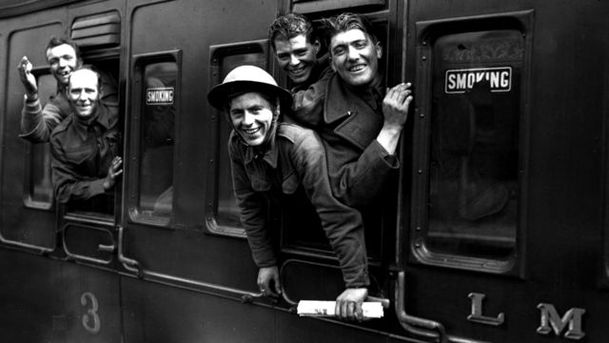How The Rest Got Home

The miracle of Dunkirk carries an air of finality about it in the popular mind. More than 300,000 troops evacuated, ending Allied - especially British - involvement on the Continent. But this is simply untrue. Nearly 200,000 non-French Allied troops continued to see action in France, some only arriving after Dunkirk. How The Rest Got Home tells some of their stories: those who survived the sinking of the Lancastria (Britain's worst-ever maritime disaster); those who founded the escape routes to the south coast of France; those who only reached home after five tortured years in German captivity, following humiliating capture at St Valery-en-Caux. There were SO many different ways back. The programme hears from a string of veterans in their late 80s and 90s. There's Henry Harding, whose leap off the Lancastria saved his life - he still has the watch he was wearing at the time, its hands frozen. Scotsmen Bill Crighton and Andrew Cheyne recall the sheer terror of Rommel's bombardment at St Valery, and the emotion of their eventual return to Aberdeen after five years' hard labour as German prisoners. On archive tape, Helen Long remembers the cloak and dagger business of hiding and protecting post-Dunkirk escapees in the brothels of Marseilles. Presenter and military historian Saul David has been a close observer of the forgotten stories of continuing heroism and tragedy after Dunkirk. He visits the Normandy coastline where much of the action took place. An Andrew Green production for BBC Radio 4.